You’re at the gas station, staring at the pump and wondering which octane level to choose for your car 91 Octane Vs 93.
Every gasoline option has its own pros and cons, and it’s essential to make the right choice to keep your car running smoothly.
91 and 93 octane are both high-performance gasolines, but 93 octane has a higher ability to resist pre-ignition, which can lead to knocking or pinging. If your car’s owner’s manual recommends 93 octane, you should use it to avoid engine damage. However, if your car is designed to run on 91 octane, you can use it without any problems.
Today, we’re going to take a closer look at the differences between 91 octane and 93 octane gasoline.
Octane levels measure a gasoline’s ability to resist knocking or pinging in your engine.
The higher the octane level, the more resistant the fuel is to pre-ignition, which can damage your engine. While most cars can run on 87 octane gasoline, some cars require higher octane levels for optimal performance.
So, what’s the difference between 91 octane and 93 octane gasoline, and how do you know which one to choose for your car? Let’s dive into the details and find out.
Table of contents
Understanding Octane Levels:

You might be wondering, “What’s the deal with octane levels?” Well, octane rating is essentially a measure of a fuel’s ability to resist engine knock, which is a type of combustion that occurs when the fuel and air mixture in your engine detonates prematurely.
When this happens, you’ll hear a knocking or pinging sound, and it can cause serious damage to your engine over time. This is where the importance of octane rating comes in.
Higher Octane Fuel Is Like:
Higher octane fuel is like giving your car a power-up, as it allows your engine to perform at its best. In fact, many high-performance sports cars and luxury vehicles require higher octane fuel to run properly.
Lower Octane Fuel Is Like:
On the other hand, lower octane fuel is like trying to run a marathon after eating a heavy meal. It can cause your engine to perform poorly and may even result in engine knock or damage.
The primary purpose of the octane rating is to prevent engine knock by ensuring that the fuel you’re using is suitable for your engine.
By using a fuel with the correct octane rating, you can prevent engine damage and ensure that your engine is running at its best.
So, when it comes to choosing between octane levels, it’s important to consider your car’s requirements and choose the right fuel for your engine.
You can watch this video for more better understanding:
Pros and Cons of 91 Octane Gasoline:
If you’re considering using 91 octane gasoline in your vehicle, there are a few things you should be aware of.
First, one potential benefit is cost savings, as 91 octane gas is often cheaper than higher octane options. However, it’s important to note that using a lower octane fuel can impact fuel efficiency, as well as performance and power.
Therefore, it’s important to weigh the pros and cons carefully before deciding whether 91 octane gasoline is the right choice for you.
Cost Savings:
Saving money on gas is a major benefit of using octane instead of regular 93 gasoline. The cost benefit of using octane is undeniable, as it offers long term savings that can add up over time.
Here are some ways that using octane can help you save money:
In addition to these benefits, using octane gasoline can also give you peace of mind by ensuring that your engine runs smoothly and efficiently.
So, if you’re looking to save money on gas in the long run, consider making the switch to octane gasoline.
Fuel Efficiency:
With improved fuel efficiency, you can go further on each tank of gas and save money in the long run. This is where octane levels come into play.
Generally speaking, higher octane fuels have higher energy densities and can help improve fuel economy. However, this may not always be the case. The type of engine in your vehicle, driving habits, and even weather conditions can all impact fuel economy.
To give you an idea of the potential differences in fuel economy between octane levels, take a look at the table below.
This table shows the estimated fuel economy for a hypothetical vehicle running on regular unleaded (93 octane) versus premium unleaded (91 octane).
As you can see, the difference in fuel economy is relatively small, but it can add up over time.
It’s important to note that using a higher octane fuel than what is recommended for your vehicle will not improve performance or engine longevity. In fact, it may actually harm your engine by causing carbon buildup and other issues.
So, while a higher octane fuel may have some benefits in terms of fuel economy, it’s important to always follow your vehicle manufacturer’s recommendations.
| Octane Level | Estimated Fuel Economy (MPG) |
|---|---|
| 91 | 30 |
| 93 | 29 |
| Difference | 1 |
Performance and Power:
You can feel the thrill of a powerful engine when you step on the gas pedal, but did you know that the type of fuel you use can impact your vehicle’s performance?
When it comes to octane vs 93, the difference lies in the amount of energy that the fuel can produce. Octane has a higher resistance to ignition, which means it can withstand higher compression ratios in high-performance engines.
On the other hand, 93 octane fuel has a higher energy content, which can lead to increased power and acceleration.
When considering performance and power, torque vs horsepower is an important concept to understand.
Torque is the twisting force that the engine produces, which is responsible for accelerating the car from a stop and towing heavy loads.
Horsepower, on the other hand, is the amount of work the engine can do over time, which is responsible for high-speed driving and passing other vehicles.
Choosing the right fuel can impact both torque and horsepower, as using the wrong octane level can cause engine knock and reduce overall performance.
Therefore, it’s important to consider the manufacturer’s recommendations and choose the appropriate fuel for your vehicle to ensure optimal performance and engine knock prevention.
Pros and Cons of 93 Octane Gasoline:
Now, if you’re looking for a more powerful and efficient fuel option, 93 octane gasoline might be worth considering.
It has a higher octane rating than regular gasoline, which means it can withstand more pressure before igniting. This makes it ideal for high-performance engines that require more power and speed.
Advantages:
One of the advantages of using 93 octane gasoline is that it can improve fuel economy.
This is because high-performance engines are designed to burn fuel more efficiently, which means they can extract more energy from each gallon of gasoline.
In addition, higher octane gasoline can reduce engine knock, which can also improve fuel economy.
Disadvantage:
On the other hand, one disadvantage of using 93 octane gasoline is that it can be more expensive than regular gasoline.
This can be a significant factor for people on a budget, especially if they drive long distances or have a gas-guzzling vehicle.
Another potential downside is that using high-octane gasoline may not necessarily lead to longer engine longevity. While it can prevent engine knock and improve performance, it’s important to follow the manufacturer’s recommendations for fuel type and octane rating to ensure optimal engine health.
In summary, 93 octane gasoline can be a good option for those who value performance and fuel economy.
However, it’s important to weigh the pros and cons before deciding whether to use it.
If you have a high-performance engine or want to improve fuel efficiency, 93 octane gasoline may be the way to go.
However, if you’re on a tight budget or don’t need the extra power, regular gasoline may be a more practical choice.
How to Determine 91 Octane Vs 93 Which Octane Level is Right for Your Car?

Determining the right level of gasoline for your car can be a tricky task, but there are a few things to consider before making a decision.
Octane Rating:
Firstly, it is important to debunk some common misconceptions about octane rating.
Contrary to popular belief, higher octane ratings do not necessarily mean better performance. In fact, using a higher octane level than recommended can actually decrease your car’s performance and fuel economy.
Impact of Gasoline’s Octane Rating:
Secondly, it is important to understand the impact of gasoline’s octane rating on your engine’s lifespan.
The octane rating refers to a fuel’s ability to resist engine knock, which can cause damage to your engine over time.
Using gasoline with an octane rating that is too low for your engine can result in engine knock, which can ultimately lead to costly repairs and a shorter lifespan for your engine.
So, how do you determine which octane level is right for your car? The answer lies in your car’s owner’s manual. Your car’s manufacturer will recommend a specific octane rating for your engine, based on its design and specifications.
It is important to follow these recommendations, as they are tailored to your specific engine and will ensure optimal performance and longevity.
Tips for Choosing the Right Octane Level:

When it comes to choosing the right octane level for your car, it’s important to follow these key tips.
By following these tips, you can keep your car running smoothly and efficiently.
Use the Recommended Octane Level:
To ensure your car runs smoothly and efficiently, stick to the recommended octane level for your vehicle. Ignoring this recommendation can lead to engine damage, reduced fuel efficiency, and increased emissions.
Here are four reasons why using the recommended octane level is important:
Importance of Engine Type:
Different engines have different compression ratios, which affect the octane level required for optimal performance.
Using the wrong octane level can cause knocking or pinging in the engine, reducing its lifespan and increasing repair costs.
High Altitude Driving:
At higher altitudes, the air is less dense, which can affect the combustion process in the engine.
Using a lower octane level than recommended can exacerbate this issue, leading to reduced power and fuel efficiency.
Fuel Efficiency:
The recommended octane level is calibrated to provide the best balance between performance and fuel efficiency.
Using a higher octane level than necessary can actually decrease fuel efficiency, as it may not burn as efficiently as the recommended level.
Emissions:
Using the recommended octane level can help reduce emissions, as it ensures that the engine is running optimally and not producing excess pollutants.
By using the recommended octane level for your vehicle, you can ensure that your car runs smoothly and efficiently, while also reducing the risk of engine damage and excessive emissions.
While it may be tempting to try and save a few cents per gallon by using a lower octane level, the potential long-term costs far outweigh the short-term savings. Stick to the recommendation and enjoy the freedom of worry-free driving.
Avoid Overfilling Your Tank:
Overfilling your gas tank can lead to costly repairs and potential safety hazards, so it’s important to be mindful of how much fuel you’re putting in. When you overfill your tank, you risk causing the fuel to spill out, which can be a fire hazard.
Additionally, overfilling your tank can cause damage to the fuel system, such as the charcoal canister and fuel injectors. This can lead to expensive repairs down the line.
To prevent overfilling your tank, it’s important to know your fuel tank capacity and to stop filling up once you’ve reached that level.
You may be tempted to keep filling up to get the most bang for your buck, but this can actually end up costing you more in the long run. Another way to prevent overfilling is to fill up slowly and monitor the fuel level as you go.
This will give you a better idea of when to stop filling up and prevent any spills or damage to your fuel system. Additionally, preventing evaporation by always replacing your gas cap tightly can help you save fuel and money over time.
Stick to a Trusted Brand:
Now that you know the dangers of overfilling your tank, let’s talk about the importance of sticking to a trusted brand when it comes to choosing your fuel.
Brand loyalty is a crucial factor in the fuel industry, and it’s not just because of clever marketing tactics.
Trust plays a significant role in consumer decision-making, especially when it comes to something as essential as fuel.
When it comes to fuel, you want to make sure you’re getting the best quality possible. By sticking to a trusted brand, you can be confident that you’re getting a product that has been rigorously tested and meets the necessary standards.
Not only that, but trusted brands are often more transparent about their ingredients and processes, allowing you to make a more informed decision about what you’re putting in your tank.
So, when it comes to choosing between octane and 93, make sure you’re picking a brand that you can trust.
By keeping these factors in mind, you can ensure that you’re making the best decision for your vehicle and your peace of mind.
Remember, your fuel choice plays a significant role in the performance and longevity of your vehicle, so it’s essential to choose wisely.
Myths and Misconceptions about Octane Levels:
You might have heard that higher octane levels always lead to better performance, but that’s not necessarily true.
In fact, there are many myths and misconceptions surrounding the topic of octane levels that can lead to misinformation and poor decision-making.
For example, some people believe that using a higher octane fuel will improve their engine’s longevity, but there is no evidence to support this claim.
To debunk some of these myths, let’s take a closer look at the impact of octane levels on engine performance.
The table below shows the recommended octane levels for various types of vehicles, as well as the potential consequences of using a lower or higher octane fuel than recommended.
As you can see, using a lower octane fuel than recommended can lead to decreased performance, while using a higher octane fuel than recommended may not provide any noticeable benefits.
Octane Level Recommendations and Consequences
| Vehicle Type | Recommended Octane Level | Consequences of Using Lower Octane | Consequences of Using Higher Octane |
|---|---|---|---|
| Economy Cars | 87 | Decreased performance | No noticeable benefits |
| Sports Cars | 91-93 | Knocking, decreased performance | No noticeable benefits |
| High-Performance Cars | 93 | Knocking, decreased performance | No noticeable benefits |
It’s important to understand the facts about octane levels and not fall for common myths and misconceptions.
While higher octane fuels may be necessary for certain types of vehicles, using a higher octane fuel than recommended will not necessarily lead to improved performance or engine longevity.
Stick to the recommended octane level for your vehicle and trust in the expertise of your mechanic or car manufacturer. By doing so, you can ensure that your vehicle runs smoothly and efficiently for years to come.
91 Octane at High Altitude vs 93 Octane at Sea Level:
At high altitudes, the air is less dense and reduces the engine’s tendency to knock. This means that 91 octane fuel will have similar knock resistance at altitude as 93 octane does at sea level.
So 91 octane gas used in a high altitude area like Denver, Colorado can provide comparable performance to using 93 octane at sea level in Los Angeles, California. The reduced air density offsets the lower fuel octane.
Overall, you can use a lower octane rating at high altitude without issue. 93 octane at sea level is equivalent to 91 at altitude.
91 vs 93 Octane Gas:
The main difference is knock resistance – 93 octane can withstand much higher compression before igniting. This prevents damaging engine knock.
In regular cars, 91 octane is usually sufficient and 93 provides no benefit. But in high-performance engines, 93 octane may be required to deliver full power.
93 octane also produces a little more energy when burnt, but the difference is minor – around 1-3% more than 91 octane.
There is no harm in using 93 octane in a regular engine, but it is a waste of money with no performance gain over cheaper 91 octane.
93 Octane with Ethanol vs 91 Without:
93 octane with 10% ethanol provides higher knock resistance than 91 octane ethanol-free. The octane boosting properties of ethanol outweigh the slightly diluted energy content.
So even with 10% ethanol, 93 octane fuel will allow for better performance in high-compression engines versus 91 octane non-ethanol. The higher octane rating matters more than the presence of ethanol.
93 Octane vs 91 Ethanol Free:
93 octane fuel will give better performance in high-compression engines, even when compared to 91 octane ethanol-free gasoline.
The higher octane rating of 93 outweighs the absence of ethanol in the 91 octane fuel. This allows the engine to run at a higher compression ratio without knocking.
So for high-performance needs, 93 octane with ethanol is still a better choice than 91 octane ethanol-free.
91 Octane No Ethanol vs 93 Octane:
The 93 octane fuel will provide higher knock resistance and allow the engine to make full power, even though the 91 octane contains no ethanol.
The higher octane rating matters more than the lack of ethanol in determining knock resistance. This allows high-compression engines to run safely on 93 octane with ethanol.
In regular engines, the ethanol-free 91 octane offers no real advantage over cheaper 93 octane with ethanol added.
G37 91 vs 93 Octane:
The Infiniti G37 uses a 3.7L V6 engine with high enough compression to benefit from 93 octane fuel.
With 91 octane, the G37 may experience occasional knocking when accelerating hard or when under heavy loads. This can reduce power.
Using 93 octane allows the G37 engine to operate as designed, reaching its full potential of 330 horsepower without knock occurring.
So for optimum G37 performance, especially when driving aggressively, 93 octane is recommended by Infiniti. Using 91 octane will not damage the engine but will cause occasional knocking and loss of power.
Should I Use 91 or 93 Octane?
The octane rating refers to the fuel’s resistance to engine knocking. Higher octane fuels like 93 can withstand higher compression before igniting, making them better for high-performance engines.
For most regular vehicles, 91 octane is sufficient. Using 93 when your owner’s manual recommends 91 offers no benefit and is a waste of money.
However, some luxury and sports cars with high-compression engines do require 93 octane to prevent knocking. Check your owner’s manual to see which fuel grade is recommended.
Can you turn 91 octane into 93?
The Simple Answer is No, you cannot turn 91 octane gasoline into 93 simply by adding an additive. The octane rating is determined by the fuel’s chemical composition.
Adding octane boosters or lead substitutes may raise the octane rating slightly, but not enough to truly convert 91 octane into 93 octane fuel. This is because the chemical additives comprise a small percentage of the overall fuel volume.
To properly increase octane, the fuel itself must be refined and blended to achieve the higher rating before reaching the pump.
But There is a DIY way to turn 91 octane fuel into 93 octane. You can use a bottle of booster to increase your octane rating.
Does 93 octane make your car faster?
Using the recommended 93 octane in a high-performance engine allows it to operate at its designed compression ratio without knocking. This prevents power loss and enables the engine to reach maximum horsepower.
So 93 octane does not directly add power, but rather allows the engine to make full use of its built-in power potential without restricting timing or reducing compression.
The result is better acceleration and responsiveness which can feel like increased power.
In a regular engine designed for lower octane, switching to 93 octane will not offer any performance benefit or make the car faster. The compression ratio is too low to require it.
Is 93 Octane the Highest?
Yes, 93 octane is the highest gasoline grade. Higher octane fuels found at some pumps include:
- 91 octane
- 92 octane
- 93 octane
- 94 octane
- 100 octane
- 101 octane
- 110 octane (used in aviation fuels)
The highest octane ratings are specialty fuels made for race cars, aircraft, and other high-performance applications needing maximum knock resistance for very high compression. They are not commonly found at regular fuel stations.
While 93 octane suffices for even high-end consumer vehicles, professional racing applications may benefit from or even require 100+ octane fuels for maximum horsepower without engine knocking. But for regular driving, 93 octane is plenty high.
Frequently Asked Questions:
Can using a higher octane fuel improve my car’s performance?
Using a higher octane fuel may not improve performance unless your engine requires it.
Octane rating myths suggest it provides better fuel economy or power, but engine design and octane requirements determine if it’s necessary. Don’t waste money on higher octane fuel if it’s not needed.
Is it safe to mix different octane levels of gasoline?
Mixing different octane levels of gasoline is not recommended as it can cause engine knocking and damage.
Octane boosting additives may be worth it, but altitude affects the octane rating of gasoline, so check the manufacturer’s recommendations. Ensure freedom by following safety guidelines.
Will using a higher octane fuel improve my car’s fuel economy?
Using a higher octane fuel will not necessarily improve fuel economy. Octane rating is a measure of a fuel’s resistance to detonation, not its energy content.
Altitude can also impact octane rating, as the thinner air can cause engines to knock, requiring higher octane fuel.
Are there any downsides to using a higher octane fuel than recommended for my car?
Using a higher octane fuel than recommended can lead to expensive engine damage.
While there may be some pros, such as improved performance, the cons outweigh them. Stick to the manufacturer’s recommendation to avoid costly repairs.
How do different brands of gasoline vary in their octane levels and quality?
When comparing gasoline brands, it’s important to consider their octane rating. This measures a fuel’s ability to resist knocking.
Higher octane fuels offer better performance and efficiency for high-performance engines. However, they can also be more expensive.
Conclusion and final thoughts 💭
Now that you have a better understanding of the differences between 91 and 93 octane gasoline, you can make a more informed decision on which level is right for your car.
While 93 octane may offer some benefits for high-performance vehicles, it may not be necessary for everyday use in a standard car.
Additionally, using a lower octane level than recommended may lead to engine knocking and decreased fuel efficiency.
To determine the right octane level for your car, consult your owner’s manual or speak with a trusted mechanic.
Consider factors such as your driving habits, the age and condition of your car, and the climate in which you typically drive.
By choosing the appropriate octane level, you can ensure optimal performance and protect your engine from damage.
Latest Posts:
- 10 Best Gear Oil for Limited Slip Differentials (Reviewed!)
- Allison 1000 Transmission Fluid Type (5 Best Options!)
- 91 Octane Vs 93 Which One You Use? (The Surprising Truth!)
- Oil Pressure Gauge Not Working: (Guaranteed Fix!)
- 10 Best Transmission Fluid for 4l60e (Tested by Experts!)
- 10 Best Ceramic Coating For Wheels (Used By Real Users!)

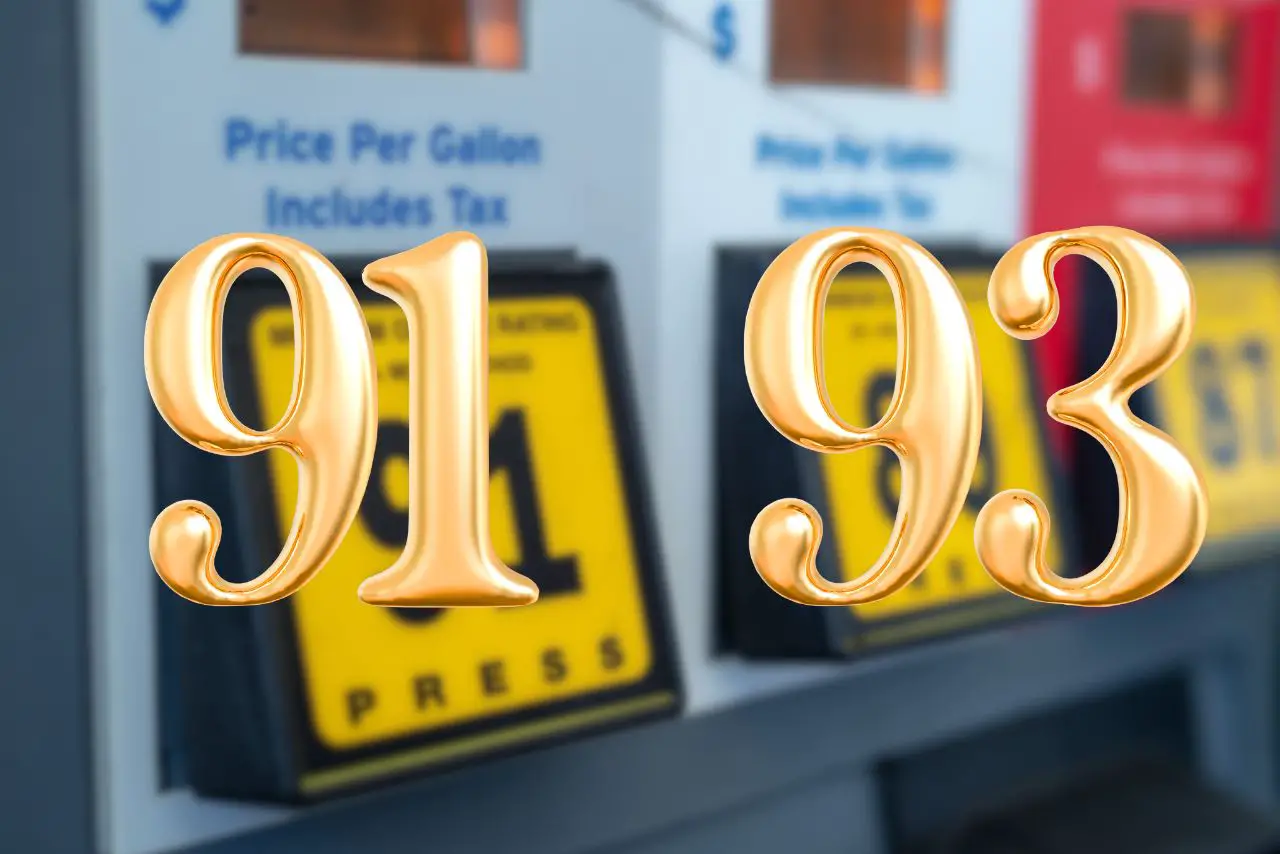
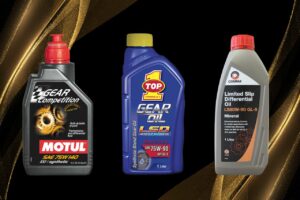



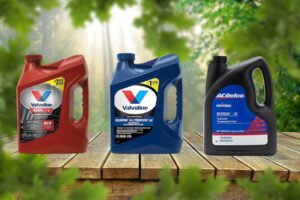

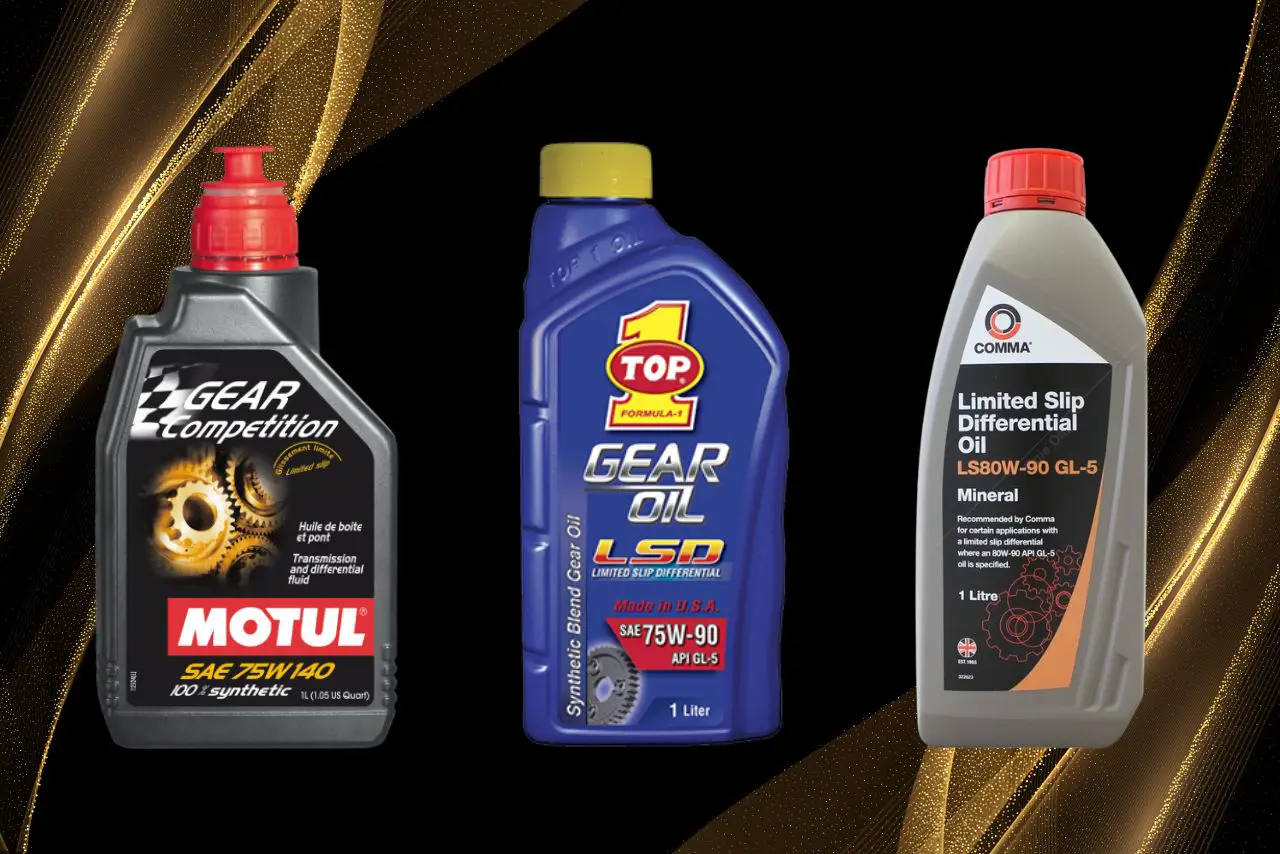
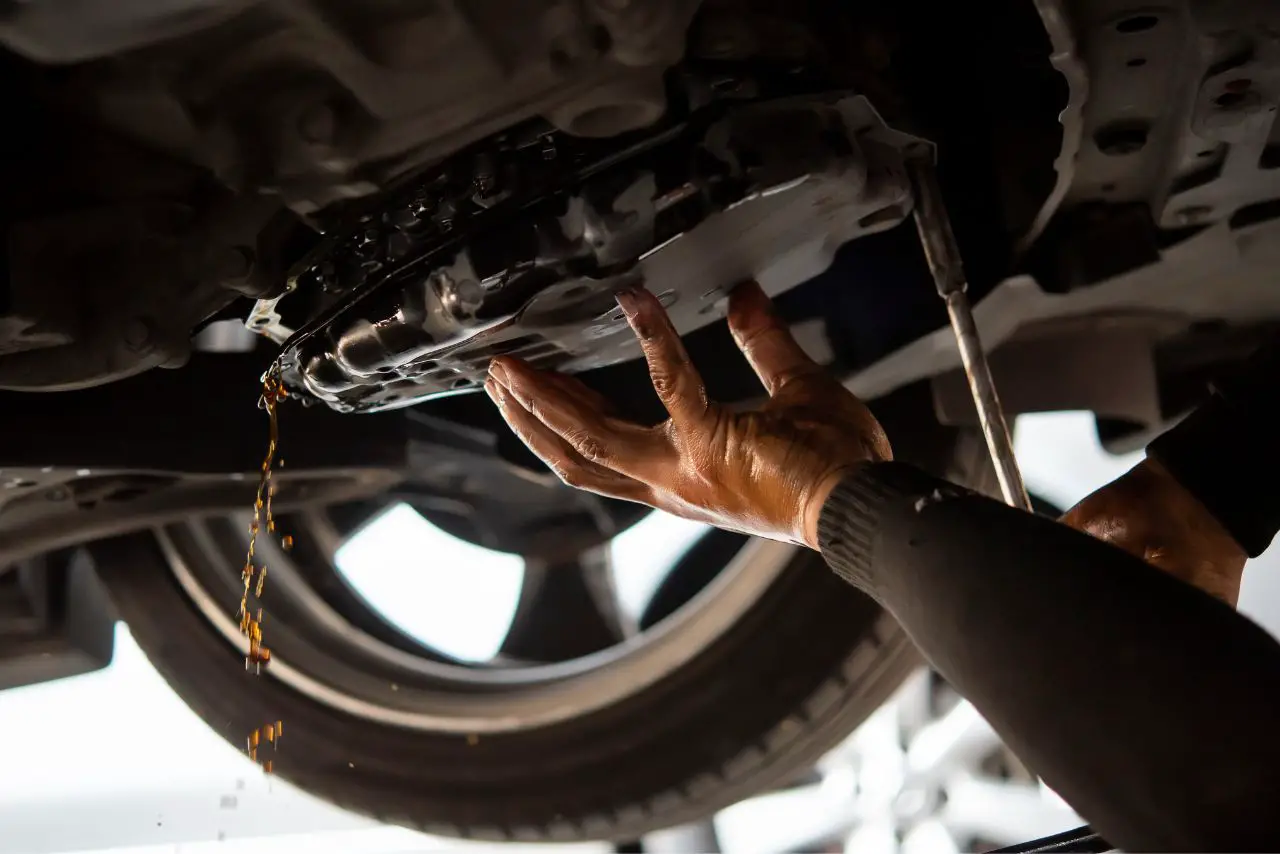

Leave a Reply